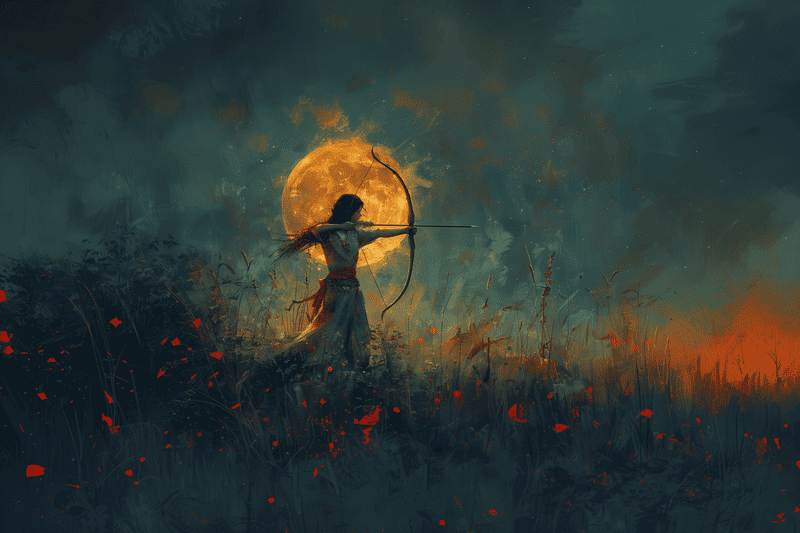What is grief? Is it an emotion? You know the answer if you have experienced losing someone close to you. Grief is not an emotion. Grief is every emotion -wrapped up into one prickly knot, and it leaves you unsure where to begin with handling it, not to mention unraveling it. Peeling back the layers of grief is not for the faint of heart. It takes grit, courage – and faith. The best word I know to describe grief, especially in its most raw and fresh state, is one that my first therapist gave me. The word is assaultive.
The violence of grief on the soul is much worse when one has no idea of what to expect. I didn’t know. I wish I had. It is my hope that if you are grieving someone at this moment, the words on this page will be comforting and reassuring and help guide you through this painful process. As we begin peeling back the layers of grief, you will also be able to create a framework in which you can safely strategize how you need to move through grief when necessary.
Sometimes You Grieve Before They’re Gone

Everyone is different, and every situation is different. In my case, the first loved one I lost was my mother. She had been ill and weak for some time. Her health issues were complex and varied. Some hit hard and fast overnight. One night, she still had a beautiful smile and was able to walk, and the next morning, her smile had literally been stolen when her disease attacked her facial nerve and mimicked a stroke. However, this was only the beginning.
I knew that there would come a day when she was no longer in this physical realm. I knew there would soon be a day when I attended my own mother’s funeral, but I bawled and sobbed while she was still alive. I grieved many things we could never do again or share because of her condition. I missed the smile that the disease had stolen from me. If I was this grief-stricken when she was still here, how was I ever going to make it when she was not? I did not dare try to answer this question.
Initial Numbness
The day came when I saw her breathe her last. It was an unusually mild November day in New Hampshire, the day before Thanksgiving (2016). The sun was bright, the sky was clear, and it was 70 °. Amazingly, in that last breath, her smile returned to us. It was like we were granted the last gift. She was peaceful, and we had a smile to prove it. I could not get out of the hospice house fast enough, but I took one last look back and then at the sky.
“You picked a great day to fly, Mom,” I said out loud. My sister heard me say it as we returned to the car and headed home to Massachusetts.I barely remember the ride. I have a vague memory of going to a funeral home and picking out caskets a few days later. I somehow managed to write a poem we printed on the funeral card. Somehow, I read a true story at her funeral! It was a true account of a dramatic experience that we had witnessed a few days before she died.
The funeral and graveside services the following day were equally brutal. The weather conditions did not cooperate at this time. The chills were harsh, and the grey clouds would not give way. None of it seemed real. She cannot really be in the box. We will take her home again and help her recover.” Of course not, my rational mind told my heart. This really is it for now.
I do believe in the afterlife, so I felt comfortable believing that she was not gone forever, and I will see her again. I believe that she is now enjoying life more than she could. Peeling back the layers of grief in an article like this would be too painful if I did not believe I would see her again. Looking back, all I can say about the period following her death was that I felt so much pain that I was numb. How pain and numbness both exist simultaneously is one of the mysteries of grief.
Everyone Grieves in Their Own Way
No one can tell you how to grieve because they do not know themselves. They also do not know what they need when they grieve. The next few days, everything, including post-traumatic stress, was set in. I was a mess, but I wanted to be alone. I could not bear seeing my father alone. The reminder of her absence was too much, which surprised me. This was the beginning of the surprise of grief.
When my mom was still alive, and we discussed what I might do to remember her, I always said I would visit the cemetery regularly. It turns out that I can count on one hand the number of times I visited her grave in almost nine years. I had no way of knowing that there would be other ways I would prefer to remember her.
I imagined that when my four siblings and I lost her, we would grieve together and often. In reality, some of the biggest tests we endured as siblings immediately followed her death. We had our own way. Some needed to continue their traditions. I could not bear trying. I had no idea how it was necessary to learn to begin peeling back the layers of grief.
You May Not Know What Triggers It
They call them “grief bursts.” There are moments when the emotional dam bursts, and there is no stopping the tears from spilling. For the first year or 2, I had them daily. I had no idea that simple things could set these horrific, assaultive grief bursts off with no warning at all. One day I was in Walmart for a few items and I passed through the cracker aisle.
One look at the box of Ritz crackers triggered a major grief burst. I instantly remembered her eating soup and asking me for crackers and shredded cheese every time. I left the store with nothing except bloodshot eyes and cramps from holding back the sobs. I would never have believed something like a box of crackers would trigger all of that emotion in a single moment.
You’re Not Crazy
One day, a woman I met who was well acquainted with grief, having lost a son to suicide and her husband to a heart attack, gently took me by hand and looked deep into me with her tearful eyes. “Listen to me carefully,” she said. “Sometimes you may grieve so much that you think something is wrong with you. It is normal, honey. There’s nothing wrong with you.” This woman did not know me well, but she seemed to have the perfect thing to say to me that day. What I felt was completely normal, but it was all new to me, so it was scary. I began to think something was wrong with me.
Time Does Not Heal a Thing

If there’s one saying I can relate to, it’s the second most unhelpful cliche. “Time heals.” I would go so far as to say that it is a myth. I am confident that I could have let all the time in the world pass, and I would be a mess today – if I lived to tell at all. After roughly two years, I felt that I needed more support than grief groups and bereavement ministers. I was not simply grieving.
I had full-blown PTSD. There was no doubt about it. I also felt that talk therapy was not going to be enough, and I had never been a fan of medication. I do not recall how I discovered Eye Movement Desensitization and Reprocessing (EMDR), but I am glad I did. I located a licensed EMDR therapist minutes from me and had an intake with her the following day. This is when healing began. Sarah gently walked with me as I began peeling back the layers of grief.
There is No Time Table
After losing someone, it is common to subconsciously or consciously track time. For years, every 23rd of every month hit me hard. I also seemed to have a strange ability to remember the dates of certain pivotal points that led to my mother’s death. I still can. November 9, 2016, was the last time I called 911 for her.
She was admitted to the hospital for exactly 7 days and then transferred to hospice for 7 days. Almost nine years later, these dates still stuck with me. My mother died the day before Thanksgiving in 2016. Needless to say, holidays can never be viewed in the same way. They especially could not be when I was still in a raw state of grief.
There is No Playbook
The more I healed, the less a hold the dates and memories had. It took a long time. One thing you will see as you begin peeling back the layers of grief is that everyone grieves differently. Even if you have grieved before, the grief you experience will change in some ways, depending on who the person is. I already know that when my dad leaves us, I will grieve him much differently than I did my mother.
That is also normal. While I know that it will be different, I do not know, nor can I, for certain, what that will be like. I now know that I need to do what I need to do. If I have to opt out of activities or gatherings that everyone else feels obligated to continue doing, I will opt out. Unapologetically. The only thing that has changed is that I now know I need to give permission to go as gently as possible. In doing so, I will be better equipped to help my siblings grieve.
Be Gentle With Yourself
The bereavement minister I met weekly said these words to me at the very beginning of our time together: Be gentle with yourself. It is now the first thing I tell anyone when I learn that they have recently lost someone. They are words to live by. Unfortunately, grief is also a part of life. The deeper the love and bond you have with the person you lose, the larger the hole they leave. Allow yourself the time and the support you may need to get through those layers because there is no such thing as “getting over it.”
There is no avoidance; therefore, the best thing is to develop a strategy for coping and healing. There is healing and hope. Surround yourself with the people with whom you feel safe sharing all these layers of emotion as they come to the surface. Allow yourself to feel what you feel as you begin peeling back the layers of grief. It requires courage to feel it and resist the urge to numb the pain.
Resources to Help you in your Grief:
Final Thoughts
As I say to my clients, you are your own expert. If you feel that it may be time to look for specialized support, trust this feeling. I will leave you with one of my favorite quotes from Susan Caine in her best-selling book, Bittersweet. “Whatever pain you can’t get rid of, make it your creative offering.”
I used to dread grief bursts.
After I did much healing, I learned to welcome them. I see them now as powerful reminders of the undying bond between my mother and I. Grief does not have a tight hold on me all these years later, but love still does and always will. When you begin peeling back the layers of grief, you will learn things about yourself that you may otherwise not. Experience is the best teacher, but the hardest too. Please be gentle on yourself as you grieve.









